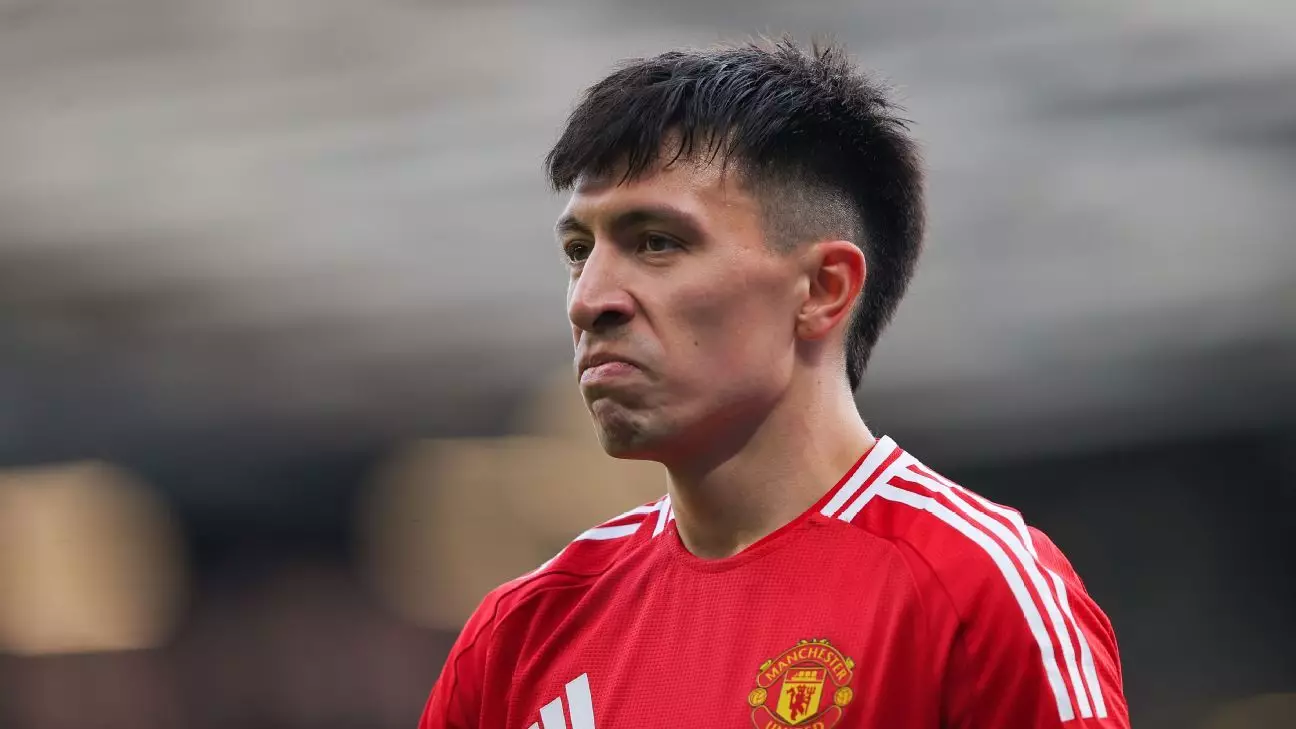In the world of football, criticism is as frequent as the changing weather. Recently, Manchester United’s central defender Lisandro Martínez found himself at the center of a heated discussion after club legend Paul Scholes expressed his doubts about Martínez’s abilities to contribute to a title-winning squad. This exchange is emblematic of the challenges faced not only by Martínez but by the entire Manchester United team struggling to regain its former glory in the Premier League. Currently languishing in the 13th position, the team’s performance has raised eyebrows and triggered pointed remarks from former players who expect more from the club.
Paul Scholes, a renowned former midfielder at Old Trafford, is known for his straightforward observations and has been particularly vocal about the present state of the team. While on The Overlap, a Sky Sports program, he stated that Martínez, even at his best, would not be a suitable defender to help United reclaim the Premier League title. Such remarks are not merely surface-level critiques; they tap into deeper concerns about the structural issues within the team and the players’ capabilities. Scholes also included fellow defender Matthijs de Ligt in his comments, questioning the latter’s diminishing form and the overall ambitions of the current squad.
Martínez’s rebuttal via social media was sharp and reflective of his frustration. He insinuated that Scholes, despite his status, may not fully grasp the demands and realities faced by contemporary players. The Argentine’s statement—“this jinx guy is really hurting” followed by a dismissive remark about Scholes’ hypothetical adaptability—reveals not only his determination to defend his own reputation but also suggests a broader issue of respect between generational players. Underneath this back-and-forth lies a classic football narrative: the new generation confronting the established legends of the game.
Criticism from club legends can have varied impacts on team morale. For some players, such remarks can serve as motivation to prove detractors wrong, potentially igniting a fire that propels them to greater heights. However, consistent negative commentary could also be detrimental, sowing seeds of doubt among the players about their abilities and the tactics employed by management. The timing of Scholes’ comments adds another layer of complexity; as United prepares for a critical fixture against Tottenham Hotspur, it raises the stakes not only for individual performance but also for team cohesion.
As Manchester United continues to navigate its tumultuous season, the exchange between Martínez and Scholes highlights a critical juncture for the club. The discourse surrounding the players’ capabilities, ambitions, and the path forward is essential for rebuilding trust in the team’s potential. For now, all eyes will be on United’s upcoming match against Tottenham, as the team seeks to transform criticism into action and strive toward reinstating their reputation as one of England’s elite clubs.

